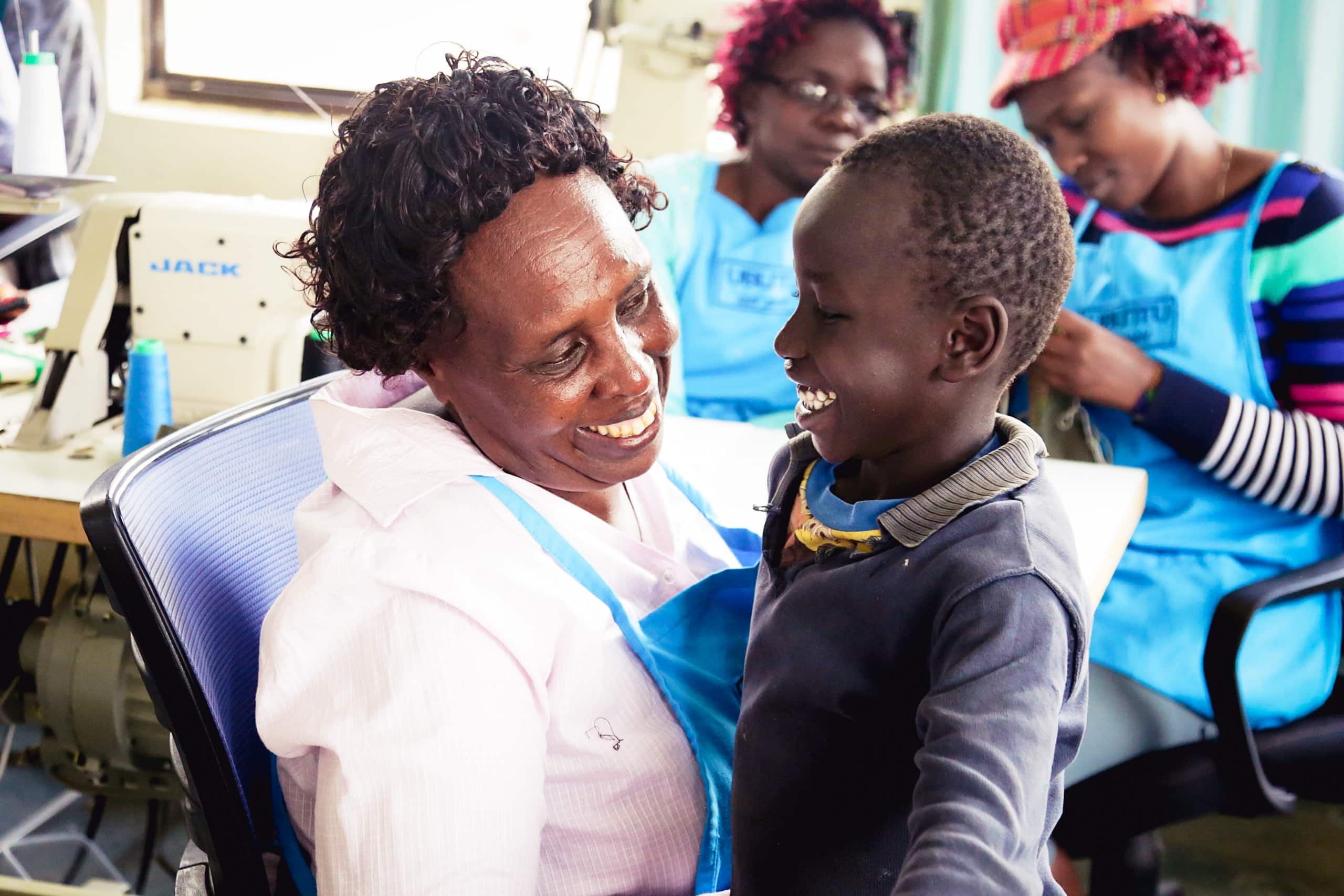
Upskilling mothers to provide for their kids with special needs.
Brand clarity and partnerships to sustain transformative therapy.
Ubuntu: I am, because we are. This age-old African philosophy describes the interconnectedness among all things, and is the deep-felt ‘why’ for Ubuntu Life. But the term was overused and their brand confused after years of positive – yet disjointed – growth. Opportunities abound for this high-potential org, from consumer sales to corporate partnerships. It was time for brand clarity and a focused plan for turning intent into action with private sector partners.
INTRODUCTION
Improved health, empowered employment.
Ubuntu Life is a nonprofit business that uses the power of global commerce to create ‘inch wide, mile deep’ social impact for mothers and children in Kenya.
In 2011, co-founders from Kenya and Texas first built a special-needs center for children with disabilities, providing life-changing therapy and medical care to kids facing physical challenges and ingrained social stigmas.
With new time to spare, mothers of the Ubuntu kids asked for help in learning new skills to provide for their families. So, in a small rented room outfitted with hand-crank sewing machines, nine Maker Mums started creating simple bags, coffee sleeves, and coasters. They then advanced to intricate products, embellished with the iconic beadwork of Maasai craftswomen – and even more sophisticated goods like the Afridrille shoe in 2018.
Beyond the fashion line, the nonprofit opened a cafe on their Mai Mahiu property with the help of Whole Foods Market – and began bottling water from a mountain spring to sell at the cafe and hotels and restaurants in Nairobi.

SITUATION
Promise curbed by confusion.
When we met Ubuntu, the potential was palpable: charismatic leadership, authenticity, inspiring cause, diverse revenue streams. But they also had ‘brand soup’: the Ubuntu Made fashion line, separately marketed Afridrille shoe, Cafe Ubuntu restaurant and coffee, Ubuntu Water. Programmatic work fell under The Ubuntu Foundation, with its donors called The Tribe. There were multiple taglines, logos, and websites. It was indiscernible exactly what the organization did, why it existed, and where it was heading.
Complicating matters, a host of other ‘Ubuntus’ exist in nearly every category – foundations, nonprofits, coffee, water, fashion goods. The product line alone faced stiff competition with other players also aimed at sustainable fashion, artisan empowerment, an improved supply chain, and integrated impact.
Potential audience targets were practically unlimited, with Ubuntu wares ranging from inexpensive bandanas to high-end handbags. Were these meant for do-gooders looking to support an NGO, or fashion-forward consumers? Does ‘made in Kenya’ appeal to Kenyans, or was this a brand for westerners?
Ubuntu had relative success attracting corporate partners and influencers, but couldn’t seem to capitalize on them over time. American Eagle sold thousands of the popular Love Bracelets in a single week, then went cold. Whole Foods sold Ubuntu coffee in every location around the world, though the average shopper likely had no idea about the brand. Bono’s RED was a partner, but sales were limited. Then there were new corporate friends in the works, like Zazzle and Kenyan restaurant chain Java House.
In short: nothing but promise for Ubuntu – maybe even too much opportunity. But they were lacking a cohesive brand strategy and partnerships action plan.
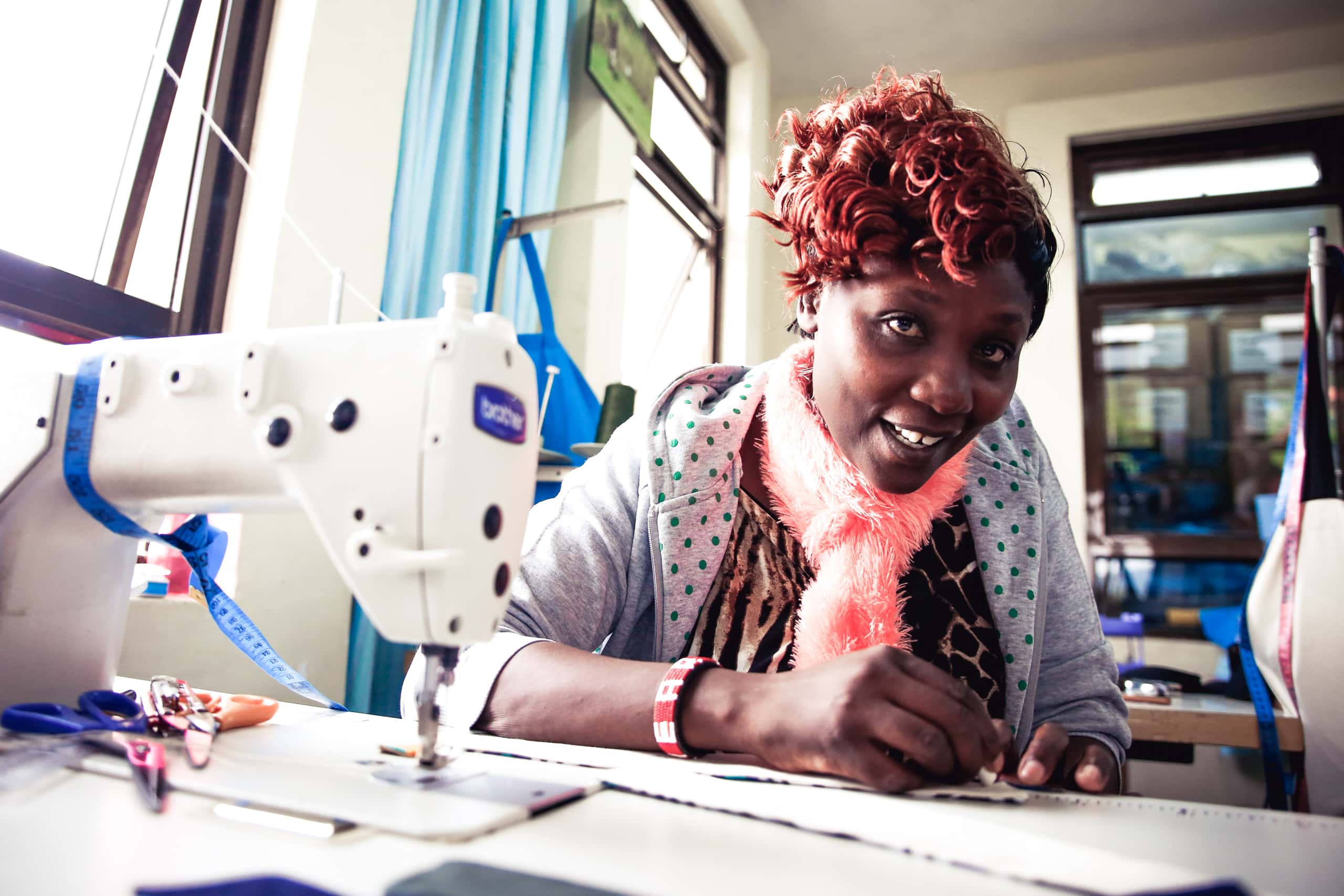
ACTIONS
Cohesion, communication, and joining hands.
Mighty Ally dug into the organization’s history, current realities, and stakeholder voices through a series of immersive workshops at the Kenyan operations and Austin HQ. Then, we outlined a three-fold engagement across brand architecture, marketing, and partnership activations.
Brand architecture
In most architecture projects, the aim is to build out disparate products and services within a cohesive multi-part structure: a branded house or house of brands. In this case, we identified there was truly just one brand – no need for sub-brands or muddling the organization beyond a single nonprofit business.
With countless potential target audiences, we pinpointed the top three and developed personas and value props for each. Next, we established three core uniques no one else could claim: Ubuntu Life was a locally-led nonprofit business; with integrated production; and multiple ways to engage – from a stop in the Cafe, to ordering shoes online, to buying coffee at a Whole Foods.
To keep interaction points cohesive, we locked down key attributes: everything must be proudly Kenyan with 100% ethical production at an upper mid-market price point. Partner brands needed limits too: companies with a demonstrated commitment to good and the same price sweet spot.
We wrapped it all in an authentic brand personality – a mix of Creator and Lover archetypes – to highlight their deep spiritual connection to humanity and desire to make things of enduring value. This identity became the framework for the go-to-market strategy, the compass for production and services, and a concept the entire Ubuntu Life team could rally around.
To take this new brand to the world, we proposed adding ‘Life’ to the official name, differentiating from other Ubuntus (a huge SEO upside) and leaning into an emerging tagline of ‘life in every…’ stitch (products), cup (coffee), drop (water). We also recommended unifying the entire brand – products and programmatic impact alike – under a single website.
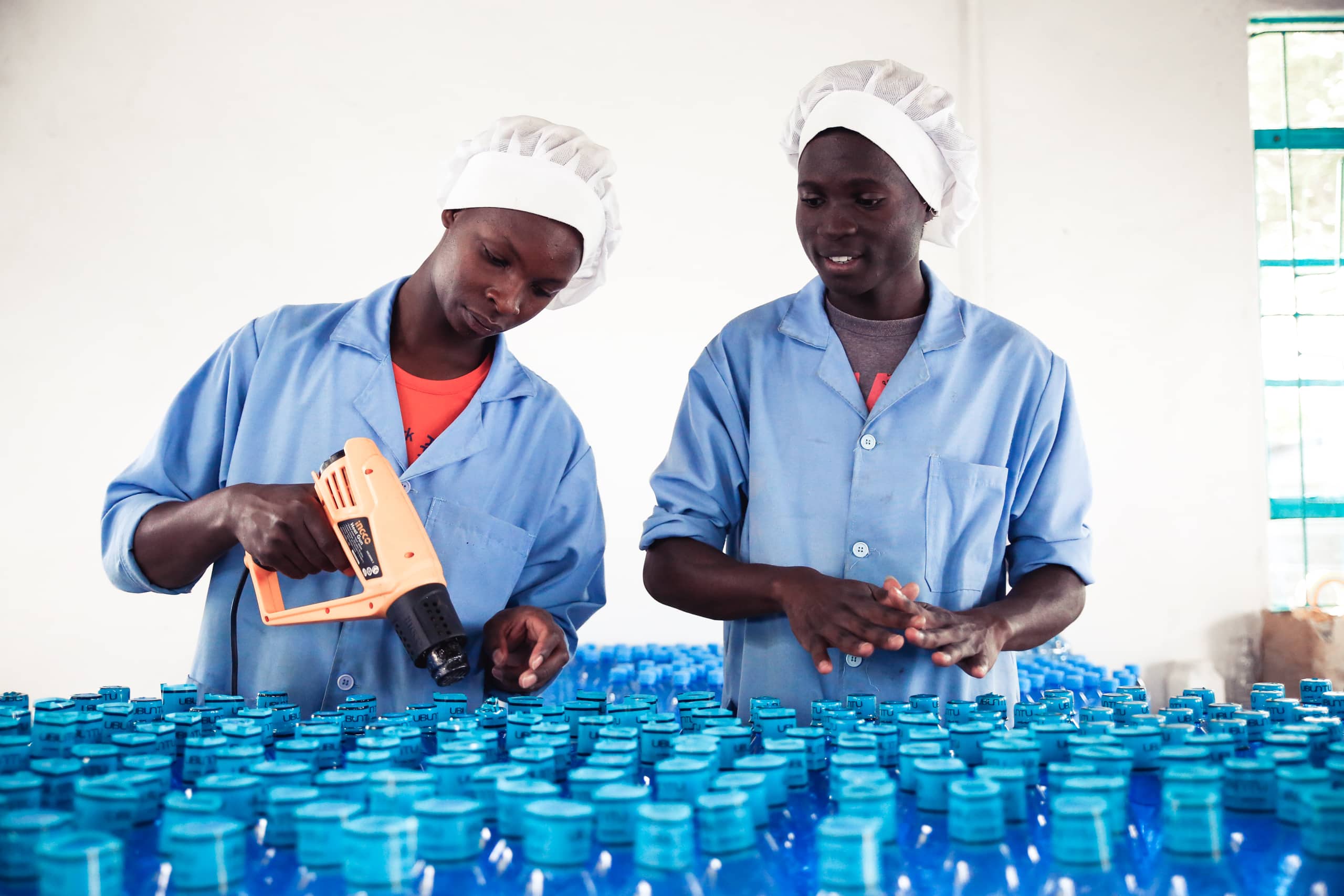
One of Ubuntu Life’s revenue streams is bottled water – piped directly from the source on their land in Kenya’s Rift Valley.
Marketing analysis
Since marketing efforts had previously been disconnected at best, we knew a look at analytics would yield a number of insights. A marcom overhaul isn’t needed as often as optimization, so we gave Ubuntu Life a new mantra: “do 10 things 10% better” instead of trying to hit 100% on a single effort or two. We sliced web data, email metrics, social media reports, and ecommerce stats – a critical step before we ever make tactical recommendations.
Some interesting nuggets: a majority of web traffic to the Cafe page came from a search for Ubuntu coffee; the RED campaign drove 40% of referrals, but there was no dedicated purchase path to convert; and 59% of site entrants came through product sub-pages and missed the mission narrative entirely.
In a fascinating realization: Kenyans comprise 4-5x more of the audience on social than web or email, with Facebook the best channel to reach locals. Ubuntu Life’s marcom mix not only needed to consider its personas, but where each lives as well. And be sure to speak with their authentic Kenyan voice, in a quest to become a prominent Kenyan fashion brand.
Finally, to translate theoretical archetype work to real-world recommendations, we scrutinized a year of social posts to classify which images and content met our Creator + Lover pairing vs. those that missed the mark. Instagram photo of a solitary lion in the distance? Too independent and Explorer. But a photo of two elephants wrapping their trunks? Classic Lover. A Facebook ad of a handbag by a fountain? Too high-end and Ruler. But an ad featuring a Maker Mum with the bag in front of a sewing machine? Perfect Creator.
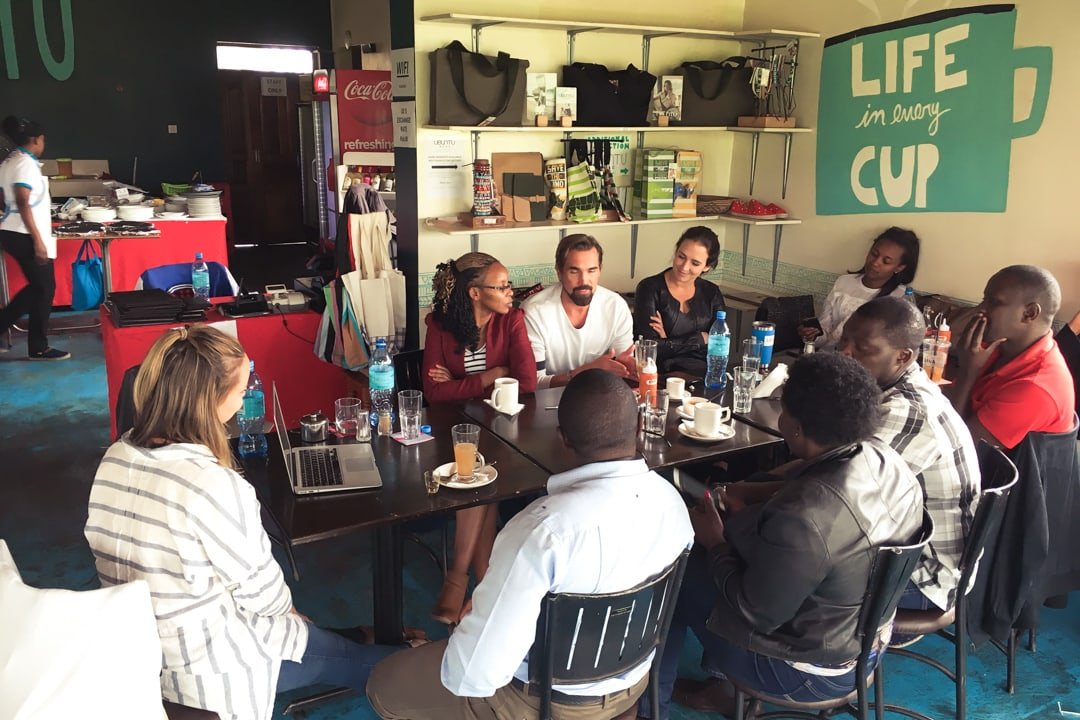
On-site immersion at Café Ubuntu – a partnership between Allegro Coffee, Ubuntu Life, and Whole Foods Market. Chefs use local, seasonal, organic produce to prepare food in the café. And coffee can be found on shelves in every Whole Foods Market around the world.
“I’ve never experienced the ‘all in’ style of getting things done like we did with Mighty Ally. They visited us in Kenya, learning and growing alongside us every step of the way. They felt like new staff members who quickly became a part of our team. They made us feel like Ubuntu was their company, not just a client.”
ZANE WILEMON, CO-FOUNDER & CEO
Partnership activations
In our third focus area for Ubuntu Life, we aimed to shift interest and good intentions from corporate partners into sustainable activation. Because all the fun brainstorming in the world won’t drive impact without clear next steps. As they say: good business planning is nine parts execution and one part strategy.
There were small steps, like scouring the web to ensure brand partners had current Ubuntu Life messaging on their sites. Most didn’t have the new name or mission, and many still referenced information from years ago.
And there were bigger initiatives, like a deal we brokered between Ubuntu Life and Austin City Limits Music Festival. Ubuntu Life was aiming to reach more conscious consumers, and ACL held nearly half a million of them captive over two weekends each October. Big, private sector brands pay in the hundreds of thousands simply to be in the park. But we structured this deal as both a ‘give back’ opportunity for festival organizers and a chance to provide real value to consumers on site. We thankfully and strategically didn’t have to pay a dime.
At the festival, Ubuntu Life set up a pop-up tent to showcase and sell products directly. We gifted shoes and bracelets to the biggest bands (watch for Paul McCartney wearing Afridrilles). And to bridge cultures, five Maker Mums flew in from Kenya to interact with fans and tell their stories face-to-face.
Also in the works is an activation between Ubuntu Life and Kenyan restaurant chain, Java House. With 65 locations across East Africa, this partnership represented massive opportunities. Our initial role was to facilitate a day-long workshop between 20 Java House executives and the Ubuntu team in Kenya. We cast a big vision: Kenya’s first true local partnership, much more than just CSR. We discussed ‘why here, why now’ and outlined must-win battles, before breaking into small groups to determine how best to activate and maybe even turn this collaboration into a playbook for other East African enterprises to follow. Wheels are in motion to launch this partnership effort in 2019.
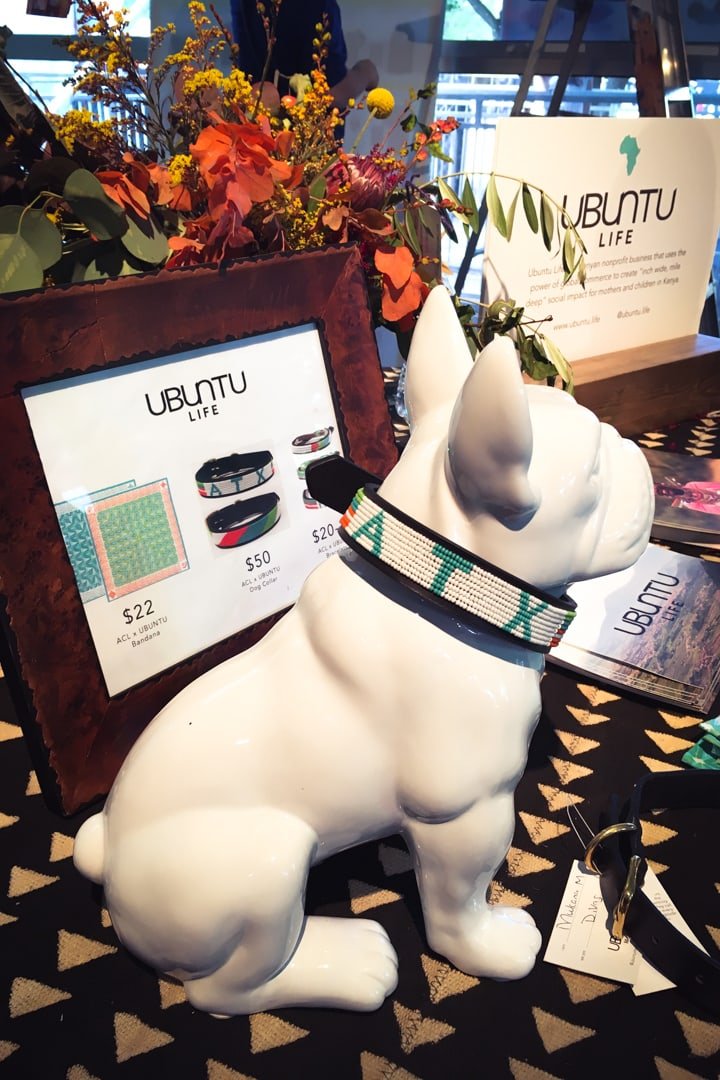
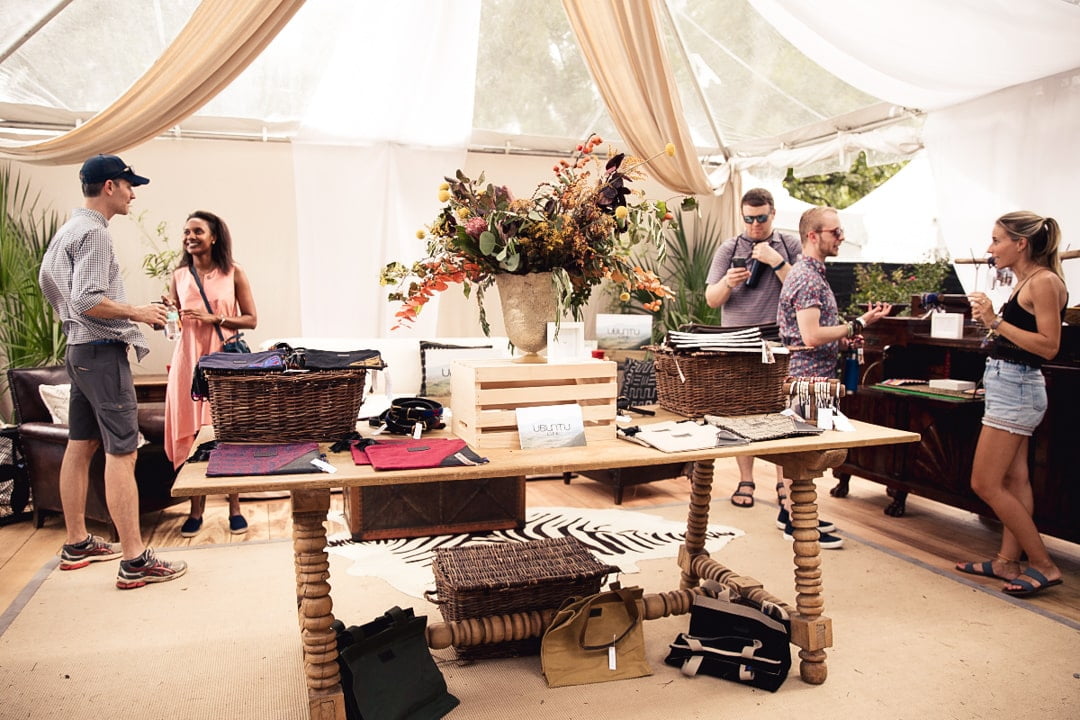
Ubuntu Life’s pop-up tent at the Austin City Limits Music Festival, where they showcased and sold products directly to festival goers.
“We refer to Mighty Ally’s work on an almost daily basis. They helped us understand how to communicate our brand in an authentic, compelling way. Their insights were extremely detailed and easy to act upon. And their commitment to seeing us succeed was truly special.”
NATHANIEL FALCK, COO & CFO
RESULTS
Online, offline, and impact growth.
In most of our engagements, work is ongoing and the tangible, beneficiary-level results of our actions won’t be felt for some time. Capacity building is just that: building a foundation for all other efforts to grow in the long run.
But the streamlined brand identity, value props, and messaging are already resonating strongly with priority audiences on the unified website. In the quarter following launch, users were up 63% and pageviews up 24% compared to the same time last year. More importantly, product sales climbed 14% in just eight weeks and the average order value jumped 56%.
A Kickstarter campaign to launch the Afridrille shoe drove $110,000 in one month, reaching four million people in 24 countries and quadrupling their goal. These results were due at least in part to the successful influencer engagement strategy, with Olympian Kerri Walsh Jennings jumping on board and Jimmy Kimmel promoting the cause and product on air.
Offline, the Ubuntu Life team used the new brand clarity to host their most successful annual donor party yet, raising $240,000 in one lovefest of an evening. After a successful ACL Music Festival activation, not only did the team sell thousands of dollars of product on site, but the estimated sponsorship value exceeded $500,000.
All in all, Ubuntu Life grew by 127% as an organization in the first year we engaged, with revenue comfortably split 55%/45% for donations and sales respectively.
Every new click and dollar moves Ubuntu Life closer to its short-term goal of employing 200 people and serving 600 kids over three years. Then in 10 years, the organization is on track to serving five Kenyan communities, 5,000 families, and five million global consumers by 2028.
All proof that I am, because we are.
127%
Overall revenue growth in the first year we engaged
$500,000
Value of brand partnership deal that didn’t cost a dime
56%
Increase in average product order value online
$240,000
Amount raised in one night leveraging brand clarity
63%
Jump in users on new unified website
